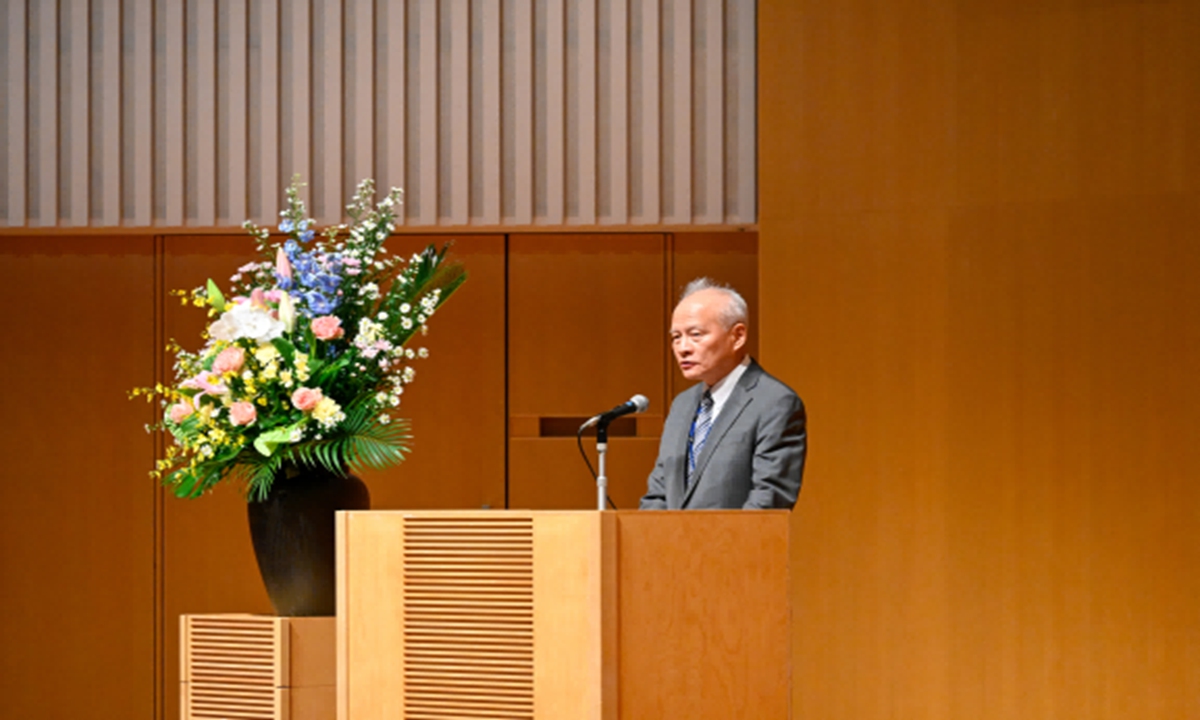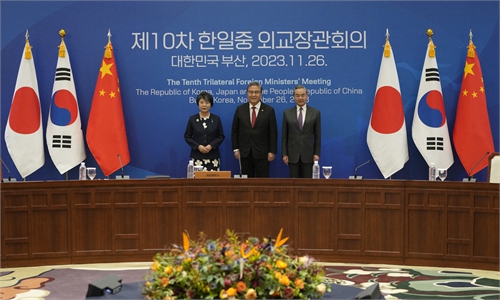China-Japan bilateral relationship is independent, not subordinated to others: former Chinese envoy to US, Japan

Cui Tiankai, former Chinese ambassador to the US and Japan, delivers a speech during the 30th anniversary memorial service in remembrance of the passing of Kakuei Tanaka, then Japanese Prime Minister, and China-Japan relations seminar, on December 16, 2023. Photo: Chinese Embassy in Japan
China and Japan's bilateral relationship is independent, and should not be subordinated to any other relations, according to Cui Tiankai, former Chinese ambassador to the US and Japan, during a speech at the 30th anniversary memorial service in remembrance of the passing of Kakuei Tanaka, then Japanese Prime Minister, and China-Japan relations seminar on Saturday in Japan, according to the Chinese Embassy in Japan.In order to establish constructive and stable China-Japan relations that meet the requirements of the new era, China and Japan must adhere to the original intention of normalizing diplomatic relations. The two sides should uphold the positioning of comprehensively advancing the strategic and mutually beneficial relations between China and Japan, Cui said.
By maintaining this positioning, China and Japan can develop in a healthy and stable manner, yielding beneficial outcomes for both countries, the Asia-Pacific region, as well as the world. However, if we choose to adopt a mindset of "rivalry" instead of partnership, and replace mutual benefit with confrontation, it will undoubtedly alter the dynamics of China-Japan relations, driving them in the wrong direction and resulting in significant detrimental effects, the former envoy to the US and Japan said in the speech.
Cui emphasized the importance of adhering to the four political documents which form the diplomatic cornerstone between the two countries. The four political documents have all confirmed the Five Principles of Peaceful Coexistence and the principles of the United Nations Charter, and made clear commitments on issues of principle related to history and Taiwan island, reflecting adherence to the basic norms of international relations and constituting the political foundation of China-Japan relations, Cui said.
He emphasized the importance of joint endeavors to eliminate any hindrances, in order to establish a productive and steady China-Japan relationship that aligns with the requirements of the new era.
Japan is a neighboring nation to China, an ally of the US, and a significant global economy. We hope that the connections between China and Japan, China and the US, and Japan and the US can foster a constructive interchange, leading to all three countries becoming cooperative partners, Cui noted.
China and Japan are both sovereign countries and neighboring countries separated by a narrow strip of water. The China-Japan relationship has its own irreplaceable value and importance. The foreign policy of both countries is independent and should not be subject to anyone's command, Cui said in his remarks.
The improvement of China-Japan relations should be pursued, irrespective of the future developments in China-US relations, China-Europe relations, and relations with other major countries, as independence and autonomy are crucial for sustainable development, according to Cui.
Global Times

